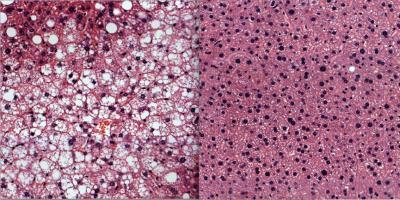Podcast: Play in new window
BOB HIRSHON (host):
Eating against the clock. I’m Bob Hirshon and this is Science Update.
Putting more hours between dinner and breakfast may stave off obesity, at least in mice. This according to biologist Satchin Panda, and his colleagues at the Salk Institute inLa Jolla,California. His team studied mice on high-fat diets. One group was allowed to eat freely at all times, and became obese and unhealthy. But another group, which ate the same number of daily calories as the first group, but within a strict eight-hour window, fared better.
SATCHIDANANDA PANDA (Salk Institute,La Jolla,CA):
Surprisingly, the mice that were eating the same number of calories, but ate only for eight hours, did not become as obese as the first group. Less than 12 percent of their body weight was fat, as opposed to 40 percent.
HIRSHON:
That group’s cholesterol, blood sugar, and liver function were all nearly normal as well. Panda says that modern society’s late-night dining and snacking may be contributing to the obesity epidemic. I’m Bob Hirshon for AAAS, the Science Society.

